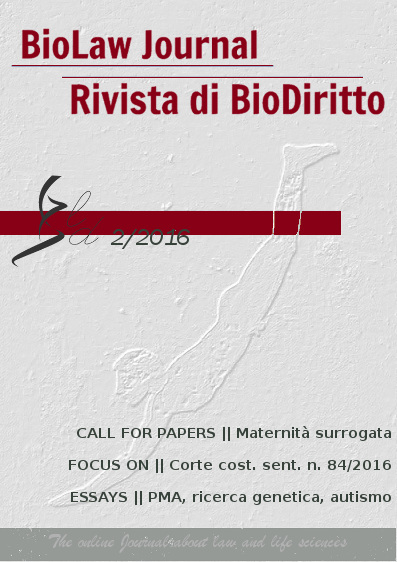Corte costituzionale n. 84 del 2016, sulla tutela dell’embrione e l’interesse della ricerca scientifica: una sentenza ispirata alla prudentia?
DOI:
https://doi.org/10.15168/2284-4503-163Parole chiave:
medically assisted reproduction, frozen human embryos, human embryonic stem cell research, constitutional caseâ€law, European Court of Human Rights, precautionary principle, right to life, principle of utility.Abstract
The Constitutional Court has returned to the Parliament the choice about the possibility of using human embryos for research. The Court acknowledges that it is an ethical controversial issue and recognizes that the evaluation should be made by the Parliament. For this reason, the Court’s decision can be defined as prudent. The issue remains that of understanding why the earlier case-law has annulled those parts of the law that established choices on issues that were also very much debated, that are equally important from an ethical standpoint. So far, the Constitutional Court has further accentuated the principle of utility – in reference to “needs of procreation” – in respect to the principle of protection of the unborn life, having denied the request of unconstitutionality of the testing of embryo prohibition perhaps may be an answer to a different logic. The current forecast of Law 40 endorses a logic of caution and responsibility, which bans the use of embryos for research. Especially as the research through embryonic stem cells so far has not led to any clinical trial and, most recently, genetic engineering has come to produce genetically modified human embryos, which the scientists themselves, for now, have decided not to implant in uterus.





